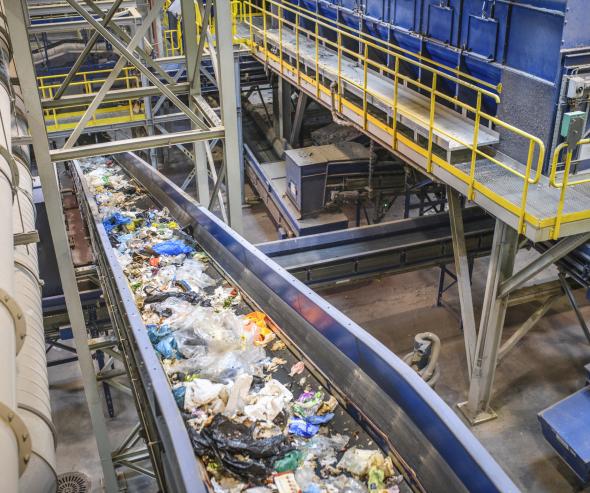23 January 2007: Agreement in the sector for the collection and the treatment of wastes in Seine-Maritime

As part of a negotiated settlement,
subsidiaries of Veolia Propreté and Sita France benefited from
extenuating circumstances for total collaboration on the investigation and examination of the case, and penalty reduction justified by substantial commitments from their controlling companies
Following a referral by the Minister of Economy in December 2001 on agreement practices implemented by the company Ecosita (subsidiary of Sita France) and the companies Ipodec Normandie, USP Normandie and CPN (subsidiaries of CGEA, now called Veolia Propreté) during the allocation of public and private markets from 1996 to 1999 in the sector for the treatment of wastes in Seine-Maritime département. The decision issued today by the Conseil de la concurrence penalizes the companies concerned (or their new owners) to pay a total of 1.4 million euros distributed as follows:
- Sita Normandie – Picardie: 585, 000 euros
- Onyx Normandie: 384, 000 euros
- Ipodec Normandie: 429,000 euros
Firstly, the subsidiaries concerned and their controlling companies decided to fully cooperate to the investigation and examination stages. The collaboration served to extend the initial list of observations and to collect elements of proof relative to 11 markets in the département
On the basis of a statement made to the Departmental-Directorate for Competition, Consumer Affairs and Fraud Control (DGCCRF) in Seine-Maritime (whose author wished to remain anonymous), an investigation was launched on November 18th 1999.
The data collected during the investigation gave elements of proof concerning the companies Ecosita and CPN for the market of the community of towns of Bolbec district (calls for tender launched in 1998 for the exploitation of a waste collection centre).
Spurred on by their respective controlling companies (Sita France and CGEA, now Veolia propreté), the companies Ecosita, Ipodec Normandie, CPN and USP Normandie decided at the time to collaborate to the investigation and admitted to have had anticompetitive contacts and if need be to have offered cover bids from 1996 to 1999 on ten other public and private markets for the collection and treatment of domestic and industrial wastes.
Afterwards, the companies concerned or their controlling companies fully collaborated with the investigation services of the DGCCRF and the Conseil's case officers. The collaboration brought substantial material elements likely to prove the suspected infringements in backing up the pieces of evidence at the disposal of the competition authorities. The Conseil has accepted to consider the cooperation as an extenuating circumstance in the determination of penalties.
Secondly, the two major companies for waste collection in France wished to cease their past practices and to take substantial commitments for the future in order to ensure that competition rules are henceforth respected at any group's level for which they are responsible
The four companies concerned refused to contest the charges against them.
Regardless of the expected outcome of the ongoing procedure, since 2000 Sita France group has launched a number of corrective measures it has committed to perpetuate and to develop: setting up of a training plan for the respect of competition rules (seminars, training sessions, setting up of an e-learning tool exclusively dedicated to competition law), creation of monitoring mechanisms (audit procedures, commitment letters required from subsidiaries' general managers, personal mail required every year from business managers).
Veolia Propreté acted similarly, serving as an example. The company set up a “compliance” system in the entire group, in order to ensure the respect for competition rules, i.e. formal instructions repeated in writing during meetings to the managers and employees of the group and its subsidiaries, systematic actions to train and raise the staff's awareness, widespread and regular distribution of a booklet entitled “ethics, convictions and responsibility”.
The companies concerned benefited from the negotiated settlement and obtained a significant reduction in the penalty
In exchange for not contesting the charges and for the commitments taken at the group's level, which were welcomed by the Conseil, the latter considered that a 35% reduction in the “regular” penalty was justified. Moreover the Conseil took into consideration the extenuating circumstance, constituted by the collaboration of subsidiaries and their controlling companies on the investigation and the examination, in order to set the “regular” penalty amount.
However, the case is not to create a precedent indicating that the Conseil will accept as a general rule the negotiated settlements in the case of horizontal agreements, which are among the most serious infringements to competition rules.
In the present case, circumstances are very peculiar since the collaboration approach by the two groups with the competition authorities took place when the “leniency programme” (now provided for by Article L.464-2 IV of the Code of commercial law) was not part of the legal corpus of French competition rules yet and the commitments have a large scope.
